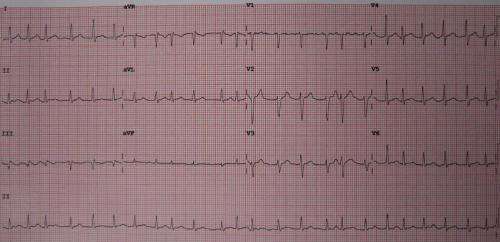Blood thinners may prevent cognitive decline in older patients with atrial fibrillation

The anticoagulant medication dabigatran yielded similar results to warfarin for the prevention of cognitive decline in older adults with atrial fibrillation after two years of treatment, according to late-breaking research presented today at the American Heart Association’s Scientific Sessions 2021. The meeting is fully virtual, Saturday, November 13-Monday, November 15, 2021, and is a premier global exchange of the latest scientific advancements, research and evidence-based clinical practice updates in cardiovascular science for health care worldwide.
Atrial fibrillation is the most common cardiac arrhythmia in older adults, and it is associated with an increased risk of stroke, cognitive impairment and dementia. Stroke can occur when a blood clot blocks blood flow to the brain, and oral anticoagulants, or medications that prevent the formation of blood clots such as dabigatran and warfarin, are typically prescribed to prevent stroke. Dabigatran has been found to be comparable to warfarin for the prevention of stroke and also has a lower risk of major bleeding complications.
Previous research has found that people with atrial fibrillation taking oral anticoagulation therapy have a lower risk of dementia, however, the mechanism involved in this benefit is unknown, and previous clinical trials have not evaluated cognitive and functional impairment outcomes among patients.
“It’s possible that cognitive decline is related to the formation of small blood clots in the brain, which may be attacked by effective medications that prevent blood clots,” said lead study author Bruno Caramelli, M.D., associate professor of medicine at the University of Sao Paulo in Brazil. “Since dabigatran offers a more stable anticoagulation status, we investigated whether it may be more effective than warfarin for the prevention of cognitive decline in patients with atrial fibrillation.”
The study, known as GIRAF, (acronym for CoGnitive Impairment Related to Atrial Fibrillation) is a two-year randomized, multi-center, prospective trial in Brazil evaluating the effects of dabigatran and warfarin on cognitive and functional impairment, bleeding occurrence and cerebrovascular complications in older patients with atrial fibrillation.
This study included 200 adults over age 70 with confirmed atrial fibrillation, and about 62% of the study participants were male. Participants were randomly assigned to take dabigatran (110 or 150 mg twice daily) or warfarin (once daily, dose controlled based on how long it takes the blood to clot) for two years. Patients also had a brain MRI at baseline and after two years to identify possible strokes.
Participants completed 90-minute cognitive and functional evaluations at the one-year and two-year follow-up visits. Another MRI was performed at the end of the two-year study period to identify possible cerebrovascular events.
The researchers found that after two years:
- no participant was diagnosed with dementia during the trial, and,
- among the entire study population, there was less than a half point difference (statistically not significant) between study participants taking warfarin and those taking dabigatran on scales measuring memory, executive functions, language and attention from baseline.
These findings highlight the importance of adequate anticoagulation treatment to decrease cognitive decline in older atrial fibrillation patients. In addition, the GIRAF researchers concluded that among older patients with atrial fibrillation who were adequately treated with warfarin or dabigatran, there was no difference in cognitive outcomes after two years of treatment.
Source: Read Full Article
